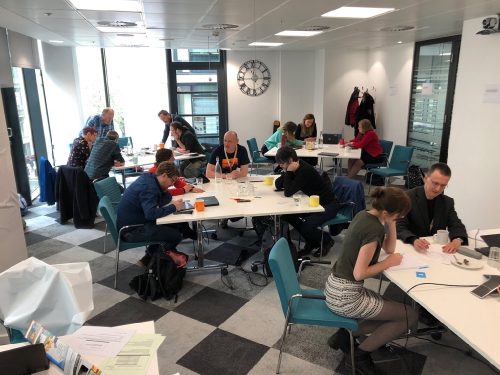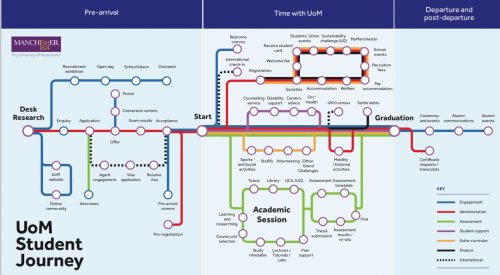Weeknote #08 – 26th April 2019
Author: James Clay
Go to Source
A shorter week this week, due to the Easter holiday weekend, so the week started on a Tuesday.
I spent some time reflecting and reviewing some initial discovery work that Lawrie was doing on the emergence of new communication tools and platforms. He is looking at the impact on teaching practices and the student experience, as well as what Jisc could do in this space.
I attended an update on how the project was going that is looking at how Jisc can influence the influencers.
Though I have left the Intelligent Campus project I still have some interest in that space. One aspect is voice assistants, tools such as Siri, Google Now, Cortana and Alexa. I noticed some recent news articles in this space and wrote a blog post about one of the articles.
Back in January I presented at the Data Matters conference about the Intelligent Campus, I found out on Tuesday that I had been allocated an action: James Clay (Head of higher education and student experience) should work with the relevant members of the M5 group to prepare a proposal for the next Data Matters Conference. So I spent some time reviewing what this entails. The next Data Matters will take place in January 2020.
Wednesday saw me attending a debrief on and reviewing the workshop I lead last week looking at Jisc’s work in the Education 4.0 space and what others are doing in this space. We reviewed what worked well and what we would improve. We aim to run further workshops in a similar vein.
On Thursday I was in London for an Agile Implementation Workshop I am helping run.
On the train to London I skimmed Educauses’ Horizon Report, the end result was I realised how much I needed to read it in more detail. So when I got to London I printed it out , so I could annotate it.
At the workshop, I talked about reporting and also did an introductory demo of JIRA. Sometimes the value of a tool such as JIRA is not the value it adds to the individual using the tool, but the combined and added value you get when everyone in a team uses that tool. Reporting is something else that often is seen as a process between two people, but aggregated reports are valuable to a range of stakeholders in an organisation. It was a great workshop and it was nice to work with a wide range of people from across Jisc.
Friday I spent time discussing and reading about the “student journey”, the “student experience” and the “student lifecycle”. These are all terms used by different people and organisations and mean different things to different groups. I do wonder if they are similar or different things.
Lancaster use the term student journey and have mapped it out in a diagram.
This map outlines the student journey from deciding to attend Lancaster University right through to graduation.
Manchester in their Student Lifecycle Project have used a map to describe what they also call the student journey.
Westminster have described in text their vision of the student journey.
So is the journey where the student is going to go, and the student experience is what happens when they get there?
So what of the student digital experience?
At Jisc we are developing a world-leading and holistic understanding of the student digital experience. What is the role of digital in students’ journeys into, through and out of study and into employment, as well as their interaction with a range of systems through the day. This understanding should include student wellbeing issues and the experiences of learners across different: backgrounds, modes and levels of study, subjects, types of learning provider, locations, family and work commitments, and disabilities.
What is clear is having a shared understanding across the organisation of the student digital experience.
Finally the EdTech Podcast episode #146 was released and I am on that podcast.
Not listened to it yet, mainly as I don’t really like listening to myself, so I’ll leave that choice up to you. However it has reminded me that I may want to record some new episodes of my podcast.




